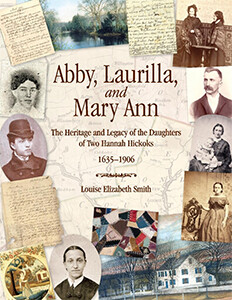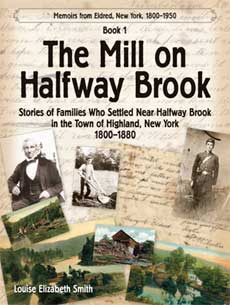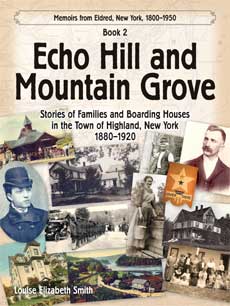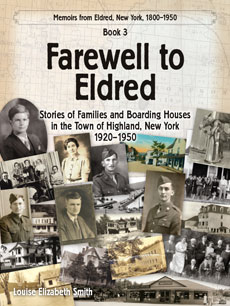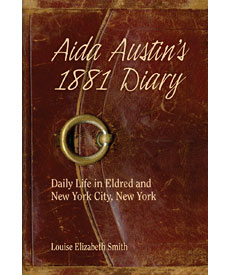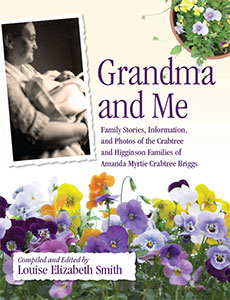Sublime scenery beckoned summer visitors to boarding houses and hotels in the hamlets of Highland and other villages along the Delaware River as the 19th Century came to a close.
The 1890s would see the decline of the D&H Canal which had been responsible for the growth of the area since 1828.
Trains, which transported passengers and goods such as petroleum, livestock, lumber, and dairy products, were not so limited by winter weather, droughts, and floods.
Summer tourists and boarding houses would flourish into the 1960s. If the boarding house was not on a lake, or stream, there was one not far away. Visitors to picturesque Highland’s boarding houses (summer homes) in Barryville, Eldred, Venoge, or Yulan would have a healthy, enjoyable vacation—just as advertised in both newspapers and railway booklets.
Meals would be made from fresh farm ingredients—milk, butter, eggs, and produce. Farms were close by, and many of the proprietors were also farmers. The many apple trees meant there would be cider to look forward to in the fall.
Whether you stayed at Bodine’s and enjoyed French gourmet cooking, or at a home that featured typical local fare (like the Leavenworth’s), you could plan on excellent meals.
The sportsman could hunt for deer, bear (sometimes), rabbit, and wild pigeons; or fish for trout, perch, pickerel, and bass. Hunting dogs were available for a fee. Some places had horse stables.


